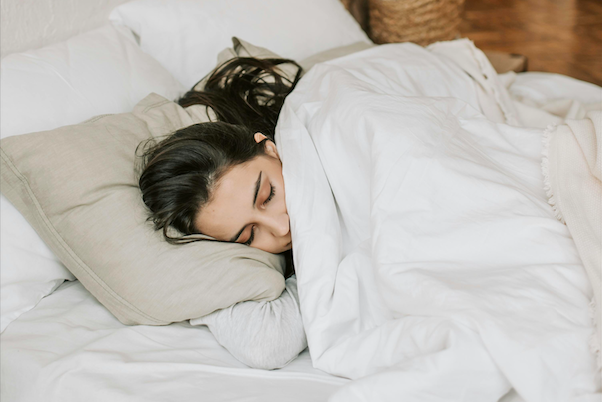
April 01, 2024
 Vlada Karpovich/Pexels
Vlada Karpovich/Pexels
Sleeping for less than seven hours nightly can increase one's risk for developing high blood pressure, research found. The risk is even greater in women compared with men.
Sleeping for less than seven hours a night was linked to a 7% increased risk of developing high blood pressure, according to a study that will be presented at the American College of Cardiology’s Annual Scientific Session this weekend. People who got less than five hours of sleep had an 11% increased risk, and the risk was greater for women compared with men.
The analysis pooled data from 16 studies conducted between 2000 and 2023, evaluating more than 1 million people altogether, to explore the "inconsistent" evidence about the relationship between sleep patterns and high blood pressure. Shorter sleep duration was "significantly associated" with higher risk of developing high blood pressure, according to study authors.
“Based on the most updated data, the less you sleep — that is less than seven hours a day — the more likely you will develop high blood pressure in the future,” Kaveh Hosseini, the principal investigator of the study, said in a release.
Blood pressure is the pressure of blood pushing against the walls of the arteries, which carry blood from the heart to other parts of the body. High blood pressure, also known as hypertension, is when the force of blood pushing against the artery walls is consistently too high. This means the heart has to work harder to pump blood. Left undetected or uncontrolled, high blood pressure can lead to serious health conditions including heart attack, stroke, heart failure, kidney disease and vision loss.
Researchers were "surprised" to find no age-based differences in the association between sleep duration and high blood pressure, since they said sleep patterns tend to shift with age. But they did find that when compared with males, females who reported less than seven hours of sleep had a 7% greater risk of developing high blood pressure.
The study did not look into the causes of the link between less sleep and high blood pressure, and authors say further research is needed on the topic. Kubanych Takyrbashev, a health and wellness adviser not involved in the study, told Healthline that there are multiple ways sleep can potentially impact blood pressure.
“When we don’t get enough sleep, our body perceives it as a stressor, triggering an increase in the activity of the sympathetic nervous system,” he said. “This system is responsible for the ‘fight or flight’ response, and its activation leads to the release of stress hormones like adrenaline and cortisol.”
Takyrbashev also said inadequate sleep can create hormonal imbalances, which may contribute to elevated blood pressure, and that chronic sleep deprivation is associated with increased inflammation, which can restrict blood flow and cause blood pressure to rise.
The CDC recommends that people older than 18 get at least seven hours of sleep per night.
Along with high blood pressure risks, not getting enough sleep can affect one's mood, memory and overall health, according to Johns Hopkins Medicine. Sleep deprivation increases the risk of colorectal cancer by 36%, the risk of heart disease by 48% and the risk of dementia by 33%. It can age the brain by 3-5 years and cause a greater risk of depression, irritability, anxiety and forgetfulness.
People who don't get enough sleep are three times more likely to catch a cold and have nearly three times the risk for Type 2 diabetes. There is also a 50% higher risk for obesity in those who get less than five hours of sleep nightly, according to Johns Hopkins Medicine.
Some habits that can improve sleep, according to the CDC, are consistently going to bed and waking up at the same times each day, making sure the bedroom is quiet and dark, removing electronic devices from the bedroom, exercising during the day and avoiding large meals, caffeine and alcohol before bedtime.
Follow Franki & PhillyVoice on Twitter: @wordsbyfranki
| @thePhillyVoice
Like us on Facebook: PhillyVoice
Have a news tip? Let us know.